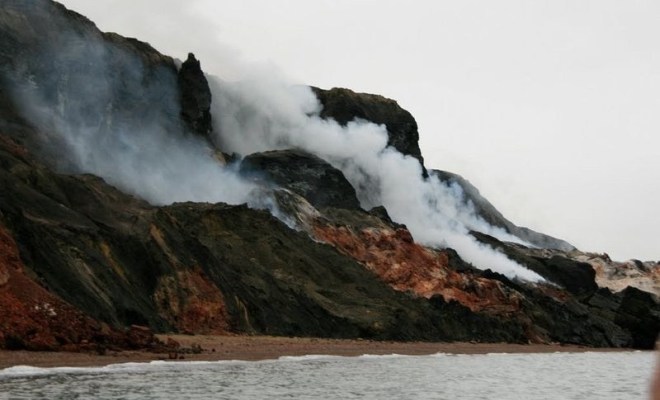FG Allays Fears Over Volcanic Eruption In Abuja
Addressing newsmen in Abuja, Director General of the Nigerian Geological Survey Agency, Mr. Alex Nwegbu, said this clarification became necessary following alarm raised by residents in the area council of a possible volcanic eruption.
According to Nwegbu, the NGSA received a frantic call from the Chairman of Bwari Area Council, October 3, 2018,, expressing serious concerns over a strange phenomenon there were witnessing in a location at Mpape, at the base of a 33KV high tension power line.
He explained that the residents were concerned after noticing some molten material and white vapour gushing out from the ground in proximity to the base of an electric power pole.
The material was suspected to be volcanic magma.
The effusion was accompanied by white vapour.
He said, “Samples were collected and immediate analysis conducted with portable instruments.
For further analysis, samples were taken to the National Geosciences Research Laboratory, NGRL, Kaduna, to identify the nature and composition of the materials.
“The Minister of Mines and Steel Development was immediately alerted.
A team of NGSA geoscientist headed by the Director general was quickly mobilized to site.
Soon after, the Minister of the Ministers of the Federal Capital Territory, FCT and Mines and Steel development joined the NGSA team on site to have a firsthand assessment of the situation.
“The de-powering of the transmission line which was earlier effected coincided with the gradual reduction of the event.”
Nwegbu, after the initial assessment on site, assured residents of the area and other Nigerians that the incident was not a volcanic eruption. He blamed the emission on leaking electrical current, stating that the effect of the heat might have dislodged the foundation of the electric pole, causing it to tilt.
He said, “The samples collected from site looked dark and glassy, indicating quick cooling like the magmatic processes that produces obsidian.
Since the origin of the effusion was restricted to the high tension electric pole, it was suspected that electric current leakage may have generated intense heat that melted the material upon which the pole was founded.”
He, however, noted that its findings were not conclusive, stating that it has commissioned further tests on the issue.




